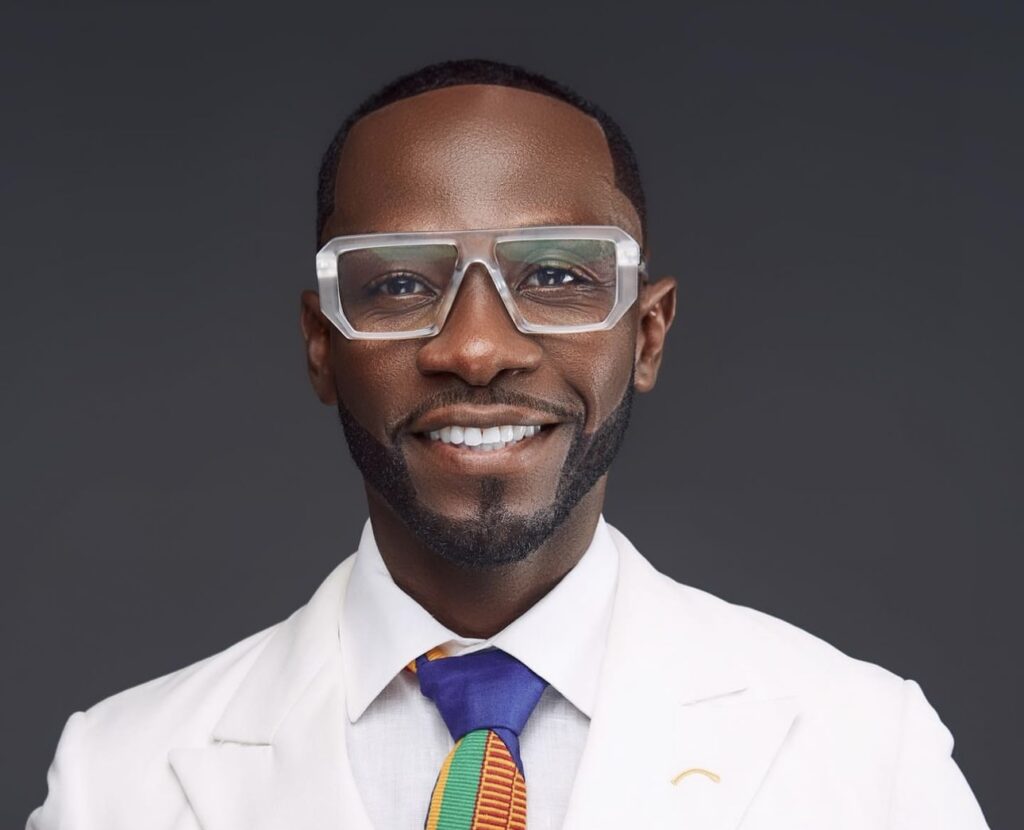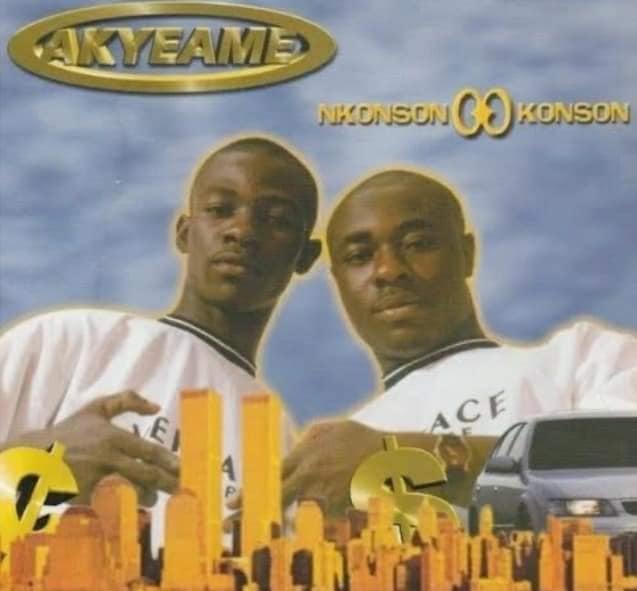
Okyeame Kwame’s Indelible Mark In Music; A True Master Of The Game
By Nana Kojo Mula
Whoever coined the phrase, ‘Live long enough to see yourself become the villain,’ was on to something, much like the wisdom of avoiding meeting our heroes. During our formative years, we often place individuals on pedestals based on their accomplishments and the images they project. However, as we mature and delve deeper into their personas, we either end up loving them more or start questioning everything we grew up believing, about that person.
In this piece, I delve into the career of legendary Ghanaian artist, Okyeame Kwame, from his days as a group member to his indelible solo run, starting a label, and life as a reality show judge down to his recent social comments, which have had people questioning him and his beliefs while some have attempted to undermine his artistic career based on his opinions.
Older readers who have followed the Ghanaian music space since the 1990s will know Okyeame Kwame, (born Kwame Nsiah-Apau), from his stint as Akyeame: a Hiplife duo with Okyeame Quophi (Daniel Quophi Amoateng) in the late 1990s. Together, they captivated audiences with several chart-topping hits such as “Masan Aba,” “Bra Yen Tena,” “Adonko,” “Sankofa,” “Ene Yebeda Okyena,” “Brebre,” and “Sick with Love,” while releasing four successful albums: “Nkonsonkonson,” “Nyansapo,” “Ntoaso,” and “Apam Foforo.” The duo’s popularity soared with sold-out shows and tours across continents, including a memorable performance at the renowned Apollo Theater in the USA in the year 2000. The duo’s exceptional talent was duly recognized with numerous prestigious awards at the Ghana Music Awards, including coveted titles like Artist of the Year and Song of the Year.

The group would separate in 2004, but Okyeame Kwame would continue his career as an artist, successfully conquering each venture. His solo career was off to a good start with the album “Boshe Ba”, and as his solo career propelled, he would co-sign and usher in his younger brothers Flowking Stone and Kunta Kinte into the limelight as the group Braderz. Okyeame’s talent was never in doubt in his early days, even with the group. Looking at his brothers and the trajectory of his career, it was evident that music does run in his blood. He would continue his fine run with four additional albums: Manwesem” (2008), The Clinic (2011), “The Versatile Show” (2012), and Made in Ghana in 2019.
Over the years, Okyeame Kwame consistently stood out as one of the top-rated artists of his time, with a repertoire of hit songs either as a solo artist or through his guest appearances. His solo career reached its pinnacle in 2008/2009 following the release of the album “Manwesem,” featuring tracks like “Woso.” This period marked a significant milestone as he clinched major wins at the Ghana Music Awards, notably earning the prestigious title of Artiste of the Year for the second time in his career, this time as a solo artist. However, this victory sparked a notable feud with the legendary rapper Obrafour, who believed he was more deserving of the award. The tension escalated when Okyeame Kwame boldly declared himself B.R.A. (Best Rapper Alive), adopting the moniker “Rap Dacta.”

Okyeame Kwame’s appeal extends beyond his creativity to his exceptional execution and presentation. His lyrics and songs predominantly feature Twi, a dialect of the Akan language in Ghana, interspersed with English. The clarity of his delivery, his clever wordplay, intricate rhyme schemes, and hints of humour made him a fan favourite during the Hiplife era. To further show off his ability and fluidity as a creative, Okyeame Kwame ventured into various music genres such as Highlife, Hip-Hop, Reggae, R&B, and Jazz, showcasing his adaptability and versatility as an artist. This versatility birthed his other alias, “Mr. Versatile” and inspired the creation of his 2012 album: “The Versatile Show.”. He would crown his versatility with his introduction to theatre through the same show, where he rapped, sang, and acted throughout the show.
With close to three decades under his belt, Okyeame has lived the life many acts would hope for in the industry. He has multiple awards to his name, hit songs, well-performing albums, and ambassadorial deals only a few can match up to. He built his own record label and entertainment company, “One Mic Entertainment,” which has managed, produced, and worked on several successful songs and artists, including Braderz, Moris Babyface, Kofi B, and Rex Omar, among many others.
Personally, this writer believes Okyeame Kwame’s discography is one of the best in the game. His songwriting, the themes he writes about, and his imagery are by far some of the best this country has had. He was putting up high-standard videos when the majority of the videos around were not so high in terms of quality, storyline, and correlation between audio and visuals. The audio and videos for Faithful, Sika, Woara, Anaa, Small, Small, Woso, and Made in Ghana, just to name a few, are some of the best music pieces of all time in Ghana.
There are very few artists whose music has touched on multiple themes, like Kwame’s music. It is this writer’s opinion that anyone who underestimates Okyeame’s artistry is someone who does not understand the fine arts. In addition to the music he makes himself, Okyeame Kwame has shown what a great A&R he is and can be through One Mic Entertainment. It would be great to see Bra Kwame transition his company into one that signs, grooms, and amplifies talents. One thing that may be overlooked as trivial but should be taken note of is how he has been one of the few male acts who has platformed and supported diverse women in music, which has brought heavy attention to their careers. At a time when Yaa Yaa (then Bertha) was new in the game, Okyeame Kwame gave her her biggest song to date when he featured her on the song Faithful. The song would project Yaa Yaa as one of the best female acts at the time.
Outside of Sarkodie, Okyeame is one of the first names that comes to mind if people supporting female acts come into play.
Now with a legendary career in the bag and what seems like another shot at music in 2023, Okyeame Kwame is facing a lot of backlash from people who once saw and revered him at his peak. His comments on Ghanaians’ attempts at accountability and better living conditions from their government leaders have led to a lot of backlash, insults, and ridicule for months. For someone who has been an advocate for a lot of things in his career (Ambassador for the fight against Hepatitis B and a climate change Ambassador, among others) and has the ears, love, admiration, and respect of a lot of people across age groups, it is understandable why people would question his reasoning based on the comments he made during the Occupy Julorbi protest and other subsequent conversations.
While it’s essential to fight for what you believe in, engage in discussions, and question opinions, some individuals have sought to critique their artistic careers, a stance this writer does not agree with.
A person’s opinion outside of who they are in the entertainment space may not always be aligned. It is why people often like to separate the art from the artist, which is a slippery slope because… at what point do you want to separate one from the other, and isn’t one an extension of the other?
Regardless of where you stand on Bra Kwame’s social commentary, honesty should prevail over falsehoods borne from hurt, disappointment, or shock. As much as I find some of his comments questionable, I would not sit behind my device and question his artistry for a second. At his peak, Okyeame Kwame towered above his peers with a level of artistry and versatility that only a few could match, and his recent antics on social media, albeit disappointing, do not invalidate his legendary status.